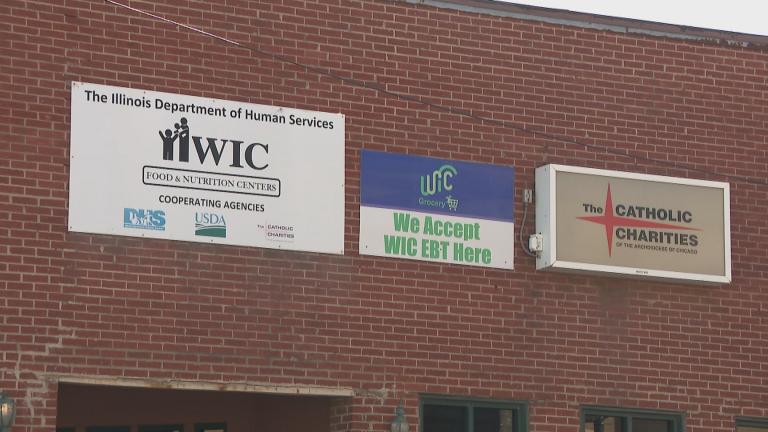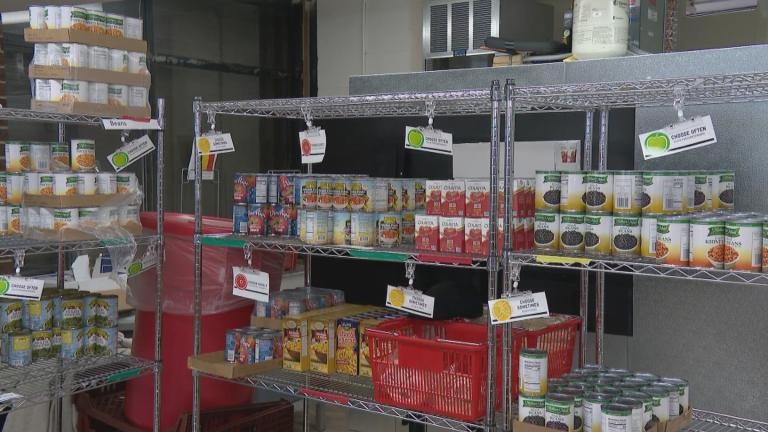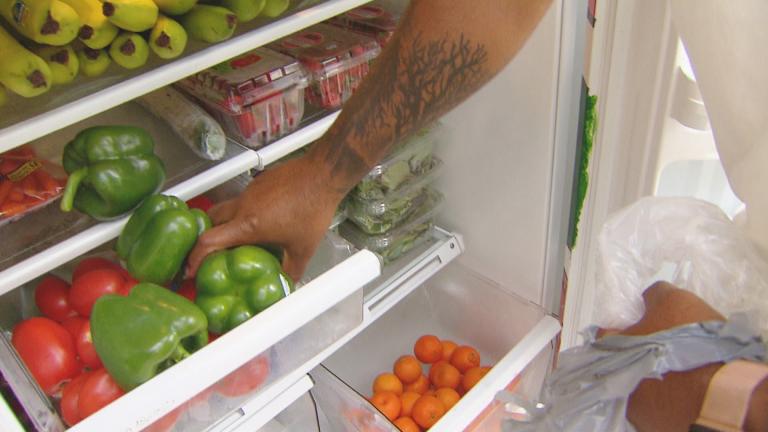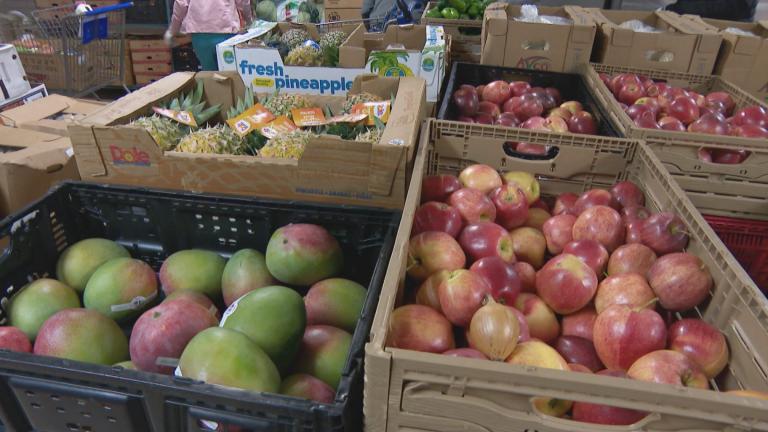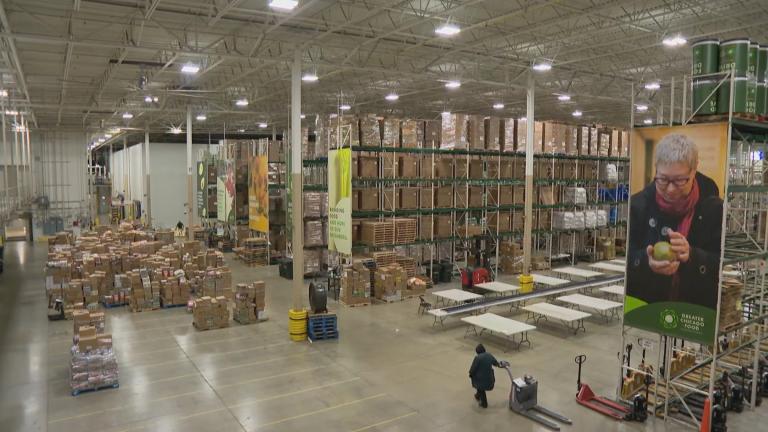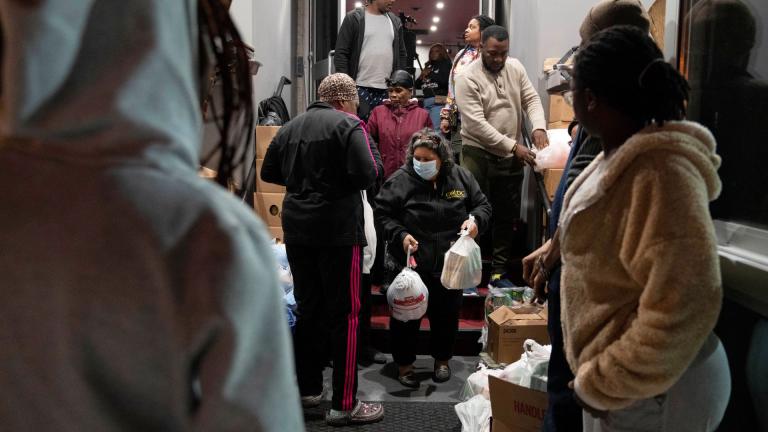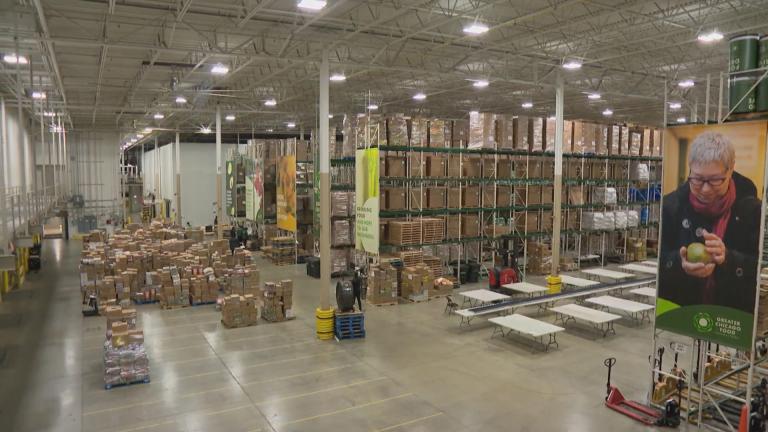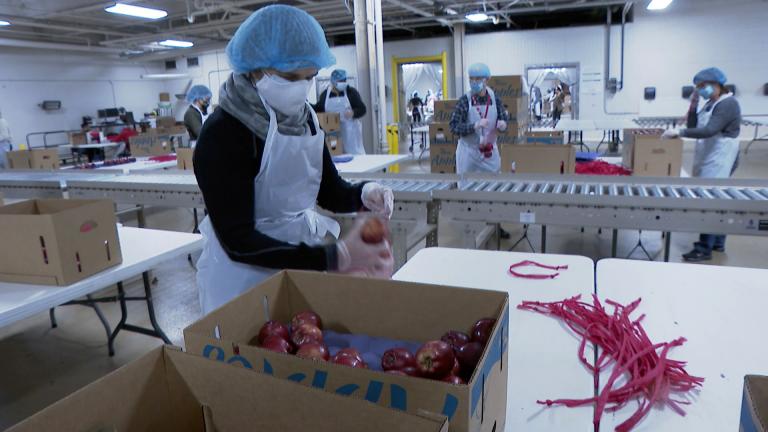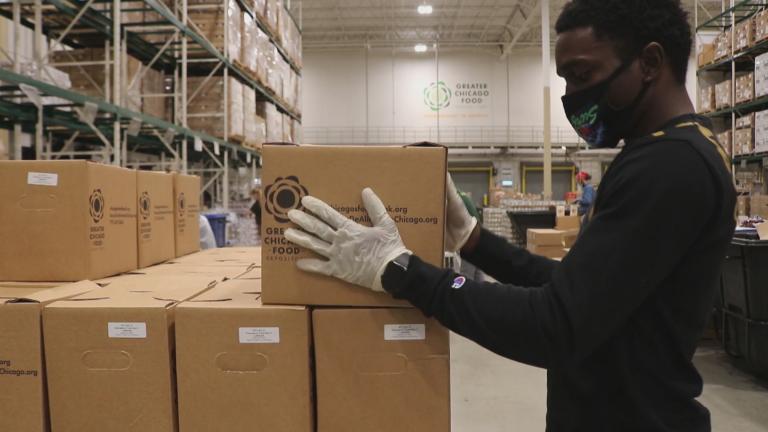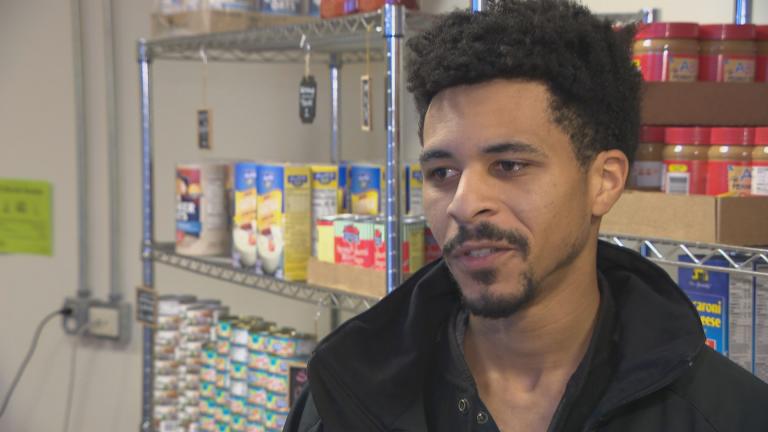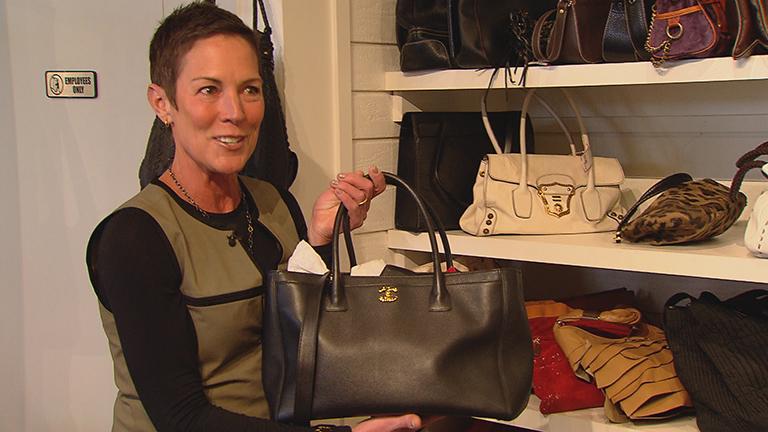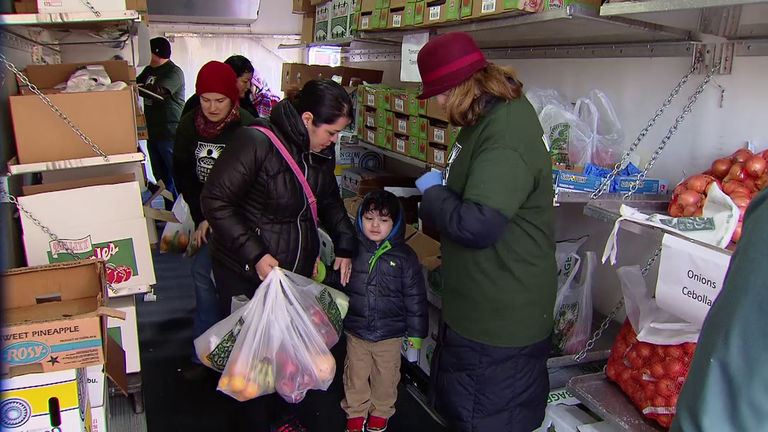The Special Supplemental Nutrition Program for Women, Infants, and Children, also known as WIC, is facing a $1 billion budget shortfall, and Congress has until March to secure funding. Illinois would need about $24 million in additional funding for the 2024 fiscal year to serve its eligible population.
Greater Chicago Food Depository
Gov. J.B. Pritzker’s administration cites “procurement delays” by Chicago as the reason for the shortfall, and says that the city in January will assume the responsibility of making sure migrants are fed, according to a news release.
Food Insecurity is on the Rise Again. How Chicagoans Are Helping Meet the Need Ahead of the Holidays
According to the Greater Chicago Food Depository, one in five households in the Chicago area is facing food insecurity. A national report found that 17 million households were food insecure at some point in 2022.
With inflation on the rise, and federal pandemic assistance expiring, food pantries and distributors say food insecurity across the city is spiking.
Households in Illinois receiving SNAP food benefits will see them decrease in March as a pandemic-era policy giving families additional benefits comes to an end. The average person will receive about $90 less in SNAP benefits per month.
The Greater Chicago Food Depository estimates that while food insecurity is overall 19% higher compared to pre-pandemic levels, it’s 37% higher for Black households.
The government estimates food prices will be up 9.5% to 10.5% this year. And that's squeezing the budgets of many Americans and the food banks that have helped them, especially with the expiration of the massive flow of pandemic relief aid.
For families already stretching to make ends meet, higher food prices means seeking help from local food pantries. Many Chicago-area pantries are reporting a significant increase in demand.
Anyone who’s bought groceries lately can tell inflation continues to push the cost of food to record highs. And people who can’t afford the higher prices are showing up at food pantries across Chicagoland.
During the winter holidays, the demand on food pantries spikes, and this year, the COVID-19 pandemic has already exacerbated hunger around the U.S. How food pantries are keeping their clients and volunteers safe.
A recent poll found that 17% of households in Chicago can’t afford to pay for both their food and bills. How COVID-19 has impacted food security in Chicago six months into the pandemic.
Food pantries are popping up in a surprising, new location: colleges and universities. How City Colleges of Chicago and the Greater Chicago Food Depository are providing for local students.
Pig out at this weekend’s Baconfest Chicago
Baconfest Chicago is back for its eighth year with plenty of bacon-inspired dishes, and it’s grown into a large event with a charitable twist since its quirky beginnings.
Jay Shefsky visits an upscale consignment shop on the North Shore that has generated nearly half a million dollars for charity by selling designer clothes, accessories and furniture.
This weekend's festive Chiditarod shopping cart race will raise thousands of dollars and pounds of food for the Greater Chicago Food Depository, but organizers this year are making special efforts to prevent teams from dressing in offensive costumes.
Twenty percent of children in Cook County are what’s known as food insecure–living in families who can’t afford or can’t access nutritious food. A new program aims to tackle food insecurity among some Chicago-area children and their parents. Take a look at how the program works.

